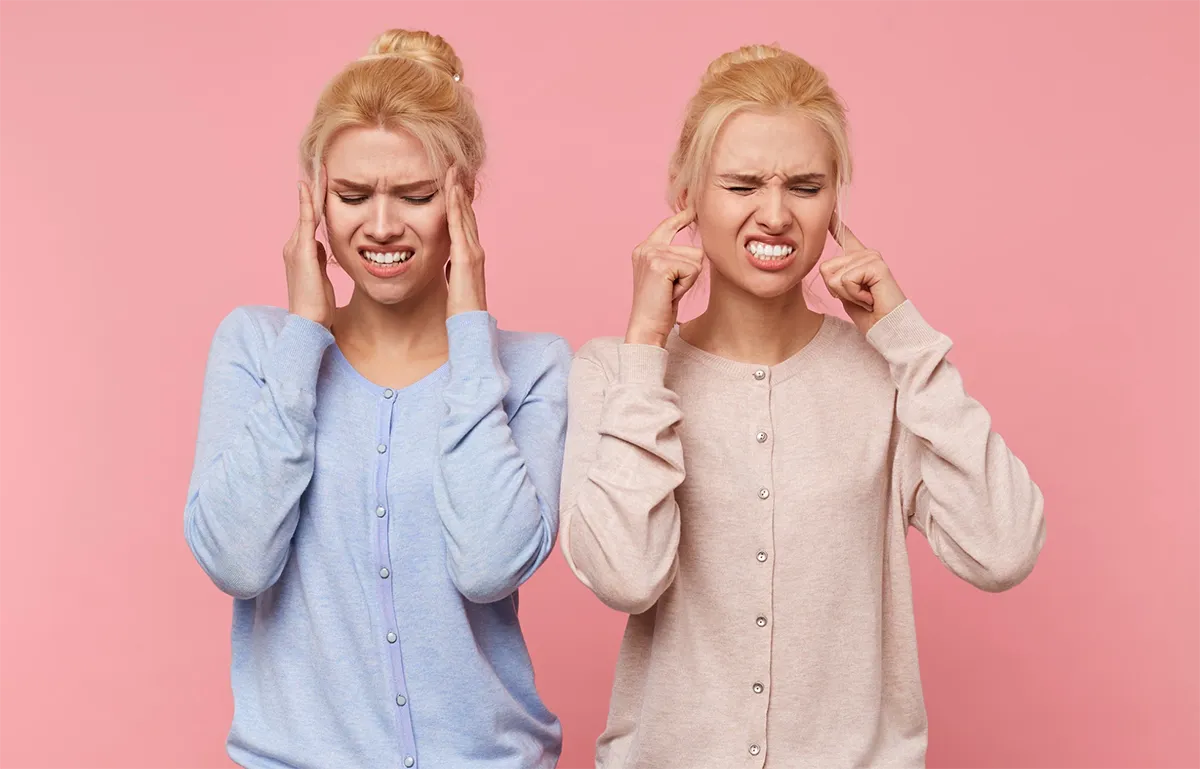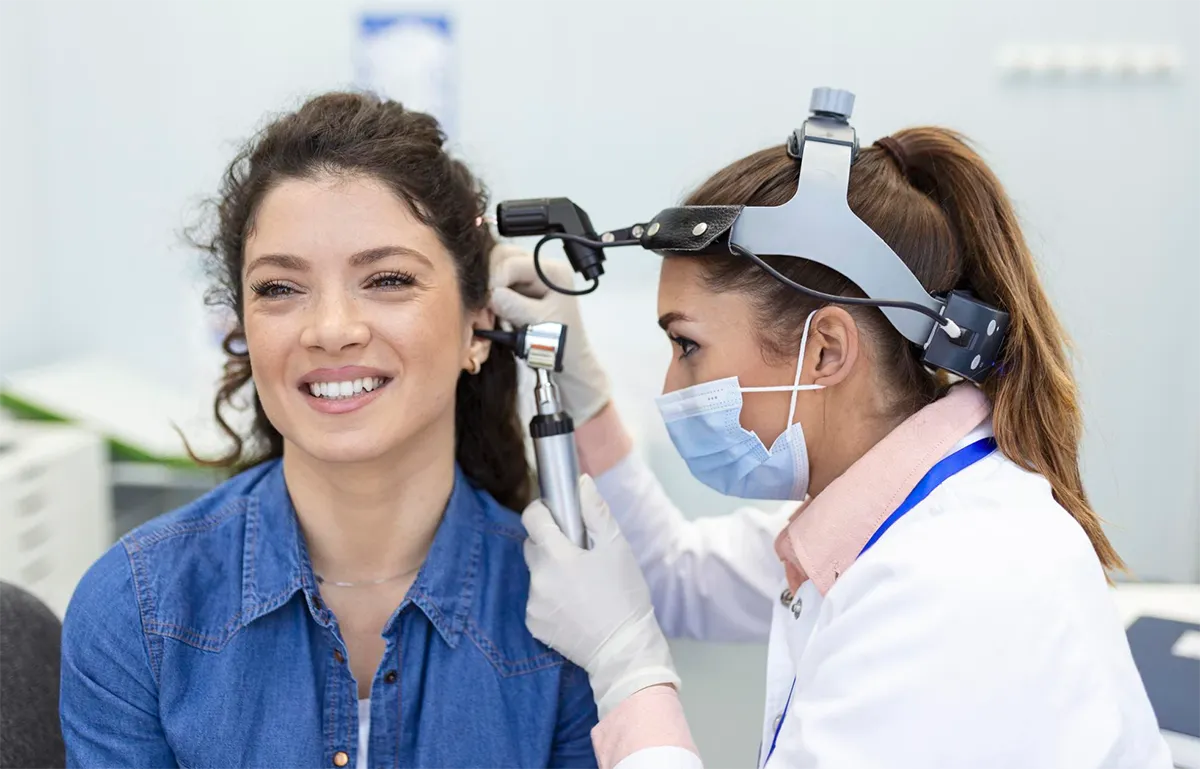Learn More About Tinnitus Clinical Trials
What Are Tinnitus Clinical Trials?
Tinnitus is defined as a phantom auditory perception without the absence of an external sound. This usually results from a disorder of the auditory system or the somatosensory system comprising the neck and head. In some cases, patients may have conditions in both areas. Patients describe the sound of tinnitus as a high-pitched ringing or buzzing that isn’t audible to anyone else.
Tinnitus may be divided into two definitions: objective and subjective. Objective tinnitus is a sound that an outsider observer can hear. Subjective tinnitus is heard only by the patient and is devoid of an external sound. Tinnitus is one of the most common symptoms among children with hearing loss. Diagnosis for the condition is usually difficult because it is a very subjective phenomenon. More tinnitus research studies are needed to measure, quantify, and describe the condition effectively.
Many health practitioners are limited to their patients’ responses, which may not be very helpful. Researchers have hypothesized several theories for the underlying mechanisms of tinnitus. Risk factors for tinnitus usually include an underlying condition, such as hearing loss due to age, an ear injury, or a problem with the circulatory system. For the most part, tinnitus cannot be cured. Tinnitus research studies have resulted in several therapeutic approaches that have produced mixed results.

Why Is Tinnitus Being Studied Through Clinical Trials?
Tinnitus is one of the most common and distressing problems that interfere with the patient's quality of life. Despite being prevalent in many countries, health practitioners struggle to diagnose and treat the condition. More tinnitus research studies are needed to evaluate the condition using standardized and repeatable tools objectively.
Researchers have been analyzing neural networks to detect a promising treatment for tinnitus. UCSF researchers have been using advanced neuroimaging to explore the primary cause of tinnitus and develop novel treatments for the debilitating condition affecting millions worldwide.
What Are The Types of Treatments Available For Tinnitus?
Treatment for tinnitus largely depends on the patient’s symptoms and the doctor’s diagnosis. Doctors will first attempt to identify if another condition is causing the tinnitus. Health practitioners often struggle to find the exact cause of tinnitus, making it difficult to find a treatment plan. To help identify the cause of the patient's tinnitus, the doctor may ask them about their medical history and examine their head, neck, and ears. Common tests include audiological exams, imaging tests, and lab tests (to check for thyroid problems and heart disease).
The first course of treatment may be removing an earwax blockage to mitigate tinnitus symptoms. Sometimes, the tinnitus may be caused by an underlying blood vessel. This can be fixed through surgery or medication. Finally, patients may be given hearing aids if their tinnitus is caused by noise-induced hearing loss. Hearing aids have been shown to improve tinnitus symptoms in patients. If the medication improves tinnitus symptoms, the doctor may stop or reduce the drug dosage, or switch to a different medication. In many cases, tinnitus has no cure.
However, some treatments can make the symptoms less debilitating. Doctors may suggest using an electronic device to suppress the noise. Examples of such devices include white noise machines that produce a sound similar to static and masking devices worn in the ear and very similar to hearing aids. They produce a low-level white noise that can suppress tinnitus symptoms. Patients with tinnitus have several counseling options, including tinnitus retraining and cognitive behavioral therapy. A licensed audiologist or psychologist will help the patient learn coping techniques to make their tinnitus symptoms more manageable.
What Are Some Recent Breakthrough Clinical Trials For Tinnitus?
2016: Acupuncture Therapy for Treating Tinnitus - This randomized controlled trial aimed to study the efficacy of acupuncture therapy for treating tinnitus symptoms. 50 participants with tinnitus were randomized into two groups: the acupuncture group (n=25) and the control group (n=25) in a 1:1 ratio.
The primary endpoint was observed after five weeks, and the control group was given acupuncture treatment for ethical reasons. It was found that acupuncture therapy significantly improved the primary outcome by reducing the intensity of tinnitus and improving the patient’s quality of life.
2018: Comparing Ginkgo Biloba Extract EGb 761® with pentoxifylline in Chronic Tinnitus - This randomized controlled trial compared the efficacy of Ginkgo biloba extract EGb 761 R with pentoxifylline. The study was performed at the University of Kralovske Vinohrady with Charles University in Prague. Patients with tinnitus were randomized into a double-blind trial to receive either 120 mg EGb 71 or 600 mg pentoxifylline twice daily in a double dummy fashion for 12 weeks. The primary outcome was observed using the Hospital Anxiety and Depression Scale (HADS), 11-point box scales for tinnitus loudness and annoyance, and the abridged Tinnitus Questionnaire, among others.
Clinically significant improvements for Mini-TQ were observed in both groups. There was no significant difference in tinnitus related outcomes in either group. Patients reported no serious adverse event from either group. It was concluded that both EGb 761 and pentoxifylline are similarly effective at reducing the loudness and annoyance of tinnitus and improving the quality of life for patients.
2020: Using Cervico-Mandibular Manual Therapy in Patients with Tinnitus - This randomized controlled trial investigated the effects of introducing cervical-mandibular manual therapies into an exercise and educational program in patients with tinnitus. 61 patients were randomized into the manual therapy and physiotherapy group or physiotherapy alone group. All patients received six sessions of physiotherapy treatment, including TMJ exercises and craniocervical exercise.
Patients allocated to the manual therapy group also received cervico mandibular manual therapies targeting the cervical and TMJ muscles. The primary endpoints included tinnitus severity and TMD pain intensity. Secondary outcomes included tinnitus-related handicap. It was found that the exercise/education and manual therapy group had the best outcome for TMD pain, tinnitus severity, and range of motion. The clinical trial concluded that introducing cervico mandibular manual therapy with regular exercise and education can improve patient outcomes.
2020: Bimodal Neuromodulation Combining Sound and Tongue for Tinnitus - This randomized controlled trial investigated the bimodal neuromodulation approach in humans by evaluating a noninvasive device that delivers sound to their ears and electrical stimulation of the tongue. 326 patients were randomized into three groups with various stimulation settings. Primary outcomes were observed over a 12-week interval and a 12-month post-treatment phase.
The endpoint was a significant reduction in tinnitus symptoms at the end of treatment. This was measured using the Tinnitus Functional Index and Tinnitus Handicap Inventory. It was found that bimodal neuromodulation helped patients deliver a high satisfaction rate for patients with no adverse events. These positive results indicate that more clinical trials for bimodal neuromodulation should be used to help develop a treatment for tinnitus.
2021: Effect of Using Caffeine on Tinnitus - This trial tested the hypothesis that caffeine can help with tinnitus. The researchers recruited 80 participants with chronic tinnitus and randomized them into two groups: one that received caffeine and a placebo. The purpose of the study was to a participants’ self-perception of tinnitus symptoms after caffeine consumption. The experimental group received a 300 mg capsule of caffeine, and the other was given a placebo.
Both groups were asked not to consume caffeine for one whole day. The endpoints were measured using the Tinnitus Handicap Inventory-THI, the profile of mood state-POMS, and the Visual Analog Scale-VAS). Researchers observed significant improvement in mood in the group that consumed caffeine. Their VAS and THI scores were improved in both groups. Audiometry assessment showed no clinically relevant difference between both groups. It was concluded that caffeine did not significantly change tinnitus-related outcomes in patients.
2021: Acupuncture for Treating Acute Tinnitus – Few studies have investigated the effectiveness of acupuncture in treating acute tinnitus. This randomized controlled trial aims to explore the feasibility of using acupuncture treatment to manage acute idiopathic tinnitus symptoms and assess objective outcomes. Patients were randomized into a control group that received conventional treatment and an intervention group that received four acupuncture treatments over six weeks.
The severity of Tinnitus was assessed using a Visual Analog Scale and a Validated Tinnitus Questionnaire. Tone audiometry was also performed. Both groups showed no significant differences in their baseline. The intervention group showed better improvements from baseline to endpoint values, except for overall well-being with clinically significant differences. No severe side effects of acupuncture were observed in patients. The results of this study make a compelling case for further research into this area.
2021: Tinnitus Activities Treatment with Total and Partial Masking - This clinical trial investigated the efficacy of using tinnitus activities treatment in two groups: those with hearing aids (HA) and those without HA. Researchers made comparisons in both groups that received i) counseling only, ii) partial masking and counseling, and iii) counseling and total masking.
The Tinnitus Handicap Questionnaire was used as the primary endpoint. In the group without HA, the average reduction in THQ was 25% for the total mask group, 14% for the partial masking group, and 15% for the counseling group. For the group with HA, the average decrease in the THQ score was 13% for total masking, 16% for partial masking, and 12% for counseling. No significant differences were observed between the groups.
Who Are Some of The Key Opinion Leaders / Researchers / Institutions Conducting Tinnitus Clinical Trial Research?
Lauer Tinnitus Research Center at Mass General Brigham is one of the leading research institutions aimed at finding novel treatment plans for tinnitus. The center is known for its cutting-edge research techniques led by senior researchers with years of experience treating tinnitus. Some of their most recent research strategies include brain imaging to ‘see’ the cells and neurons of the ear and cochlear nerve repair.
Dr. M. Charles Liberman, MD, is the director of Eaton Peabody Laboratories at Mass Eye and Ear, who was awarded the Tinnitus Research Award for his work on advancing tinnitus research. Dr. Charles studies the peripheral auditory system and its various pathways to better understand hearing loss and other issues such as tinnitus. His work uses a variety of novel approaches, from molecular biology to neuroscience and everything in between.
